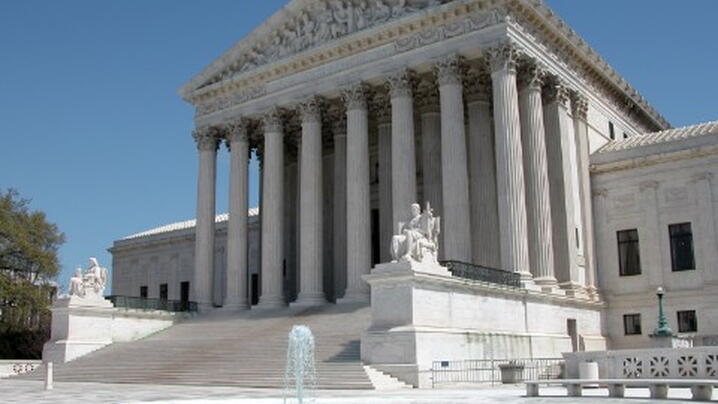
by Lisa Soronen, executive director, State and Local Legal Center
Knick v. Township of Scott involves a common theme before the Supreme Court: One party is asking it to overturn long-standing Supreme Court precedent. Unfortunately for local and state governments, the precedent on the chopping block arises in the property rights context (where the more conservative Supreme Court tends to favor property owners) and is generally considered favorable to local and state governments.
The township of Scott, Pennsylvania, adopted an ordinance requiring cemeteries, whether public or private, to be free and open and accessible to the public during the day. Code enforcement could enter any property to determine the “existence and location” of a cemetery.
The U.S. Constitution’s Takings Clause states that “private property [shall not] be taken for public use, without just compensation.” Rose Mary Knick sued the county in federal (rather than state) court claiming the ordinance was invalid per the Takings Clause, after code enforcement went onto her property without a warrant looking for a cemetery.
In Williamson County Regional Planning Commission v. Hamilton Bank of Johnson City (1985), the Supreme Court held that before a takings claim can be brought in federal court, landowners must comply with state law procedures and remedies enacted to provide just compensation in a takings case.
The Third Circuit agreed with the township that Knick failed to comply with the Williamson County because she filed her case in federal court instead of pursuing her takings claim under Pennsylvania’s Eminent Domain Code.
Knick argues that the Supreme Court should overturn Williamson County because it “deprives property owners of reasonable judicial access for a takings claim, impedes the orderly development of takings law, and causes a tremendous waste of judicial and litigant resources.”
The township of Scott defended Williamson County’s state court first requirement as “founded in the very language of the Fifth Amendment, and . . . consistent with Article III’s requirement of a case or controversy, with other principles of federalism, and with the recognition of the uniquely complex and local issues presented by land use regulation.”
The Supreme Court has repeatedly and recently refused to hear petitions arguing that Williamson County should be overturned. This case will provide Justice Gorsuch with his first opportunity to participate in a takings case on the Supreme Court. Oral argument will be held in fall 2018.
Related Resources
A Warning to Local Governments on the Take: Property Rights Advocates Are Standing Their Ground. This PM magazine article from 1995 provides more legal background on the Takings Clause, as well as a checklist for local governments on this issue.
Bringing Permitting into the 21st Century. A 2015 article looks at how the city of Phoenix, Arizona, revamped its permitting process to include online features, which increased the efficiency of the permitting department.
Neighborhood Bill of Rights Dona Ana County. This document from 2007 is an example of a Neighborhood Bill of Rights from Dona Ana County, New Mexico. This Neighborhood Bill of Rights is designed to give homeowners and neighborhood associations an understanding of their rights as it relates to local government actions on issues like zoning and annexation.
New, Reduced Membership Dues
A new, reduced dues rate is available for CAOs/ACAOs, along with additional discounts for those in smaller communities, has been implemented. Learn more and be sure to join or renew today!
